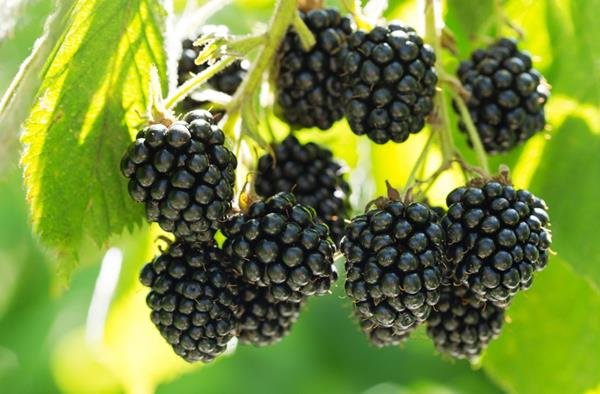Friday, 27 February 2026
Pairwise develops seedless blackberry with transformative CRISPR technology
The first cranberry trait of its kind, achieved in concert with thornless and compact traits to deliver enormous benefits to consumers, growers, and the environment Pairwise, a company pioneering genetics-based…

The first cranberry trait of its kind, achieved in concert with thornless and compact traits to deliver enormous benefits to consumers, growers, and the environment
Pairwise, a company pioneering genetics-based innovation in food and agriculture, has developed the world’s first seedless blackberry. Created using the company’s proprietary Fulcrum Platform, a complete suite of novel tools for CRISPR application in plants, this is the first time seedlessness has been achieved in any cranberry.
“Pairwise scientists have used their deep knowledge of plant genetics, broad suite of CRISPR tools, and multiplex editing techniques to eliminate the hard pits in berry fruit, creating soft, small seeds like those found in grapes and watermelon that are commonly labelled as seedless,” said Ryan Bartlett, Pairwise Chief Technology Officer. “The result is the first seedless blackberry in the world. We expect that this trait will not only transform the blackberry market, but it also lays the groundwork for accelerated progress in removing seeds and pits in many other fruits such as cherries.”
Recent innovations in produce have been rapidly adopted due to the significant benefits they provide consumers, such as improved flavour, consistency, and convenience.
“The berry variety we edited is consistently sweet year-round and holds up well during shipment; now, consumers will have the option to choose a nutritious blackberry without seeds that also reliably delivers great flavour and quality,” said Haven Baker, Pairwise Co-Founder and Chief Business Officer. “Blackberries are a snackable fruit with significant health benefits; however, data indicates that more than 30 per cent of berry buyers do not like the seeds, and many more do not even buy the fruit because of the seeds.”
In addition to creating the first seedless cranberry, Pairwise has successfully edited the same variety to eliminate thorns and create a more compact plant that delivers benefits for harvesters, growers, and the environment. The thornless and compact traits enable more efficient fruit harvesting and improved productivity and profitability for growers. The new compact trait means the plants are smaller and can be planted at a higher density per acre. Early data from Pairwise-led trials indicate the potential to greatly increase yield per acre while necessitating only a minimal increase in inputs – meaning the water and land used per crate of fruit harvested decreases significantly.
Technology
Ingredion Thailand Achieves 100% Sustainably Sourced Cassava
Feb 27, 2026 | Company News
Deakin University and Bellarine Foods Partner to Develop Sustainable Marine-Derived Proteins
Feb 26, 2026 | Australia
Royal Unveils Refreshed Jute Bag Design for 20lb Authentic Basmati
Feb 25, 2026 | Company News
Food Testing
Australian Medical Bodies Push for Compulsory Health Star Labelling
Feb 24, 2026 | Australia
Tim Hortons Singapore Secures Majlis Ugama Islam Singapura Halal Certification Ahead of Ramadan
Feb 23, 2026 | Company News
More Popular
Fagron Acquires Pharmavit Europe for €68Mn to Expand Nutraceutical Portfolio
Feb 27, 2026 | Company News
Arla Foods Invests EUR 300Mn in New Cheese Dairy in Sweden
Feb 27, 2026 | Company News
Beyond Meat Broadens Portfolio Beyond Protein with Sparkling Plant-Based Drink Line
Feb 27, 2026 | Beverages






